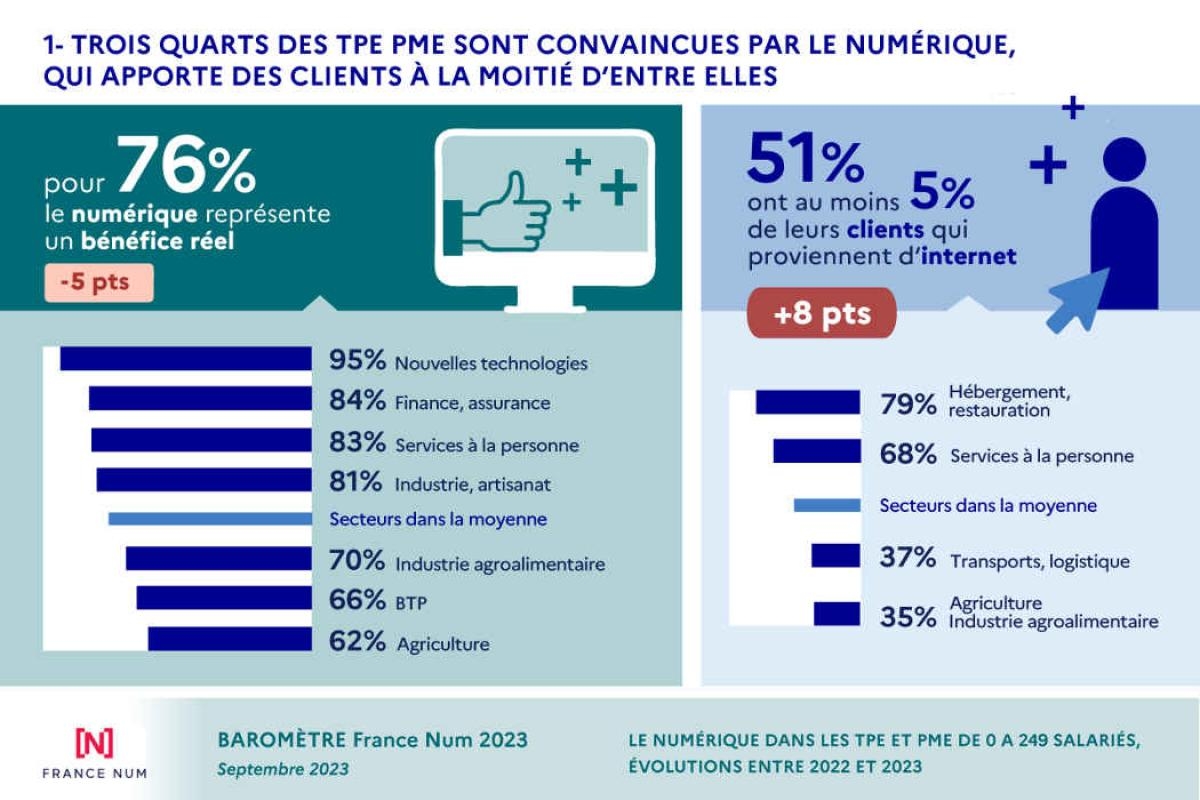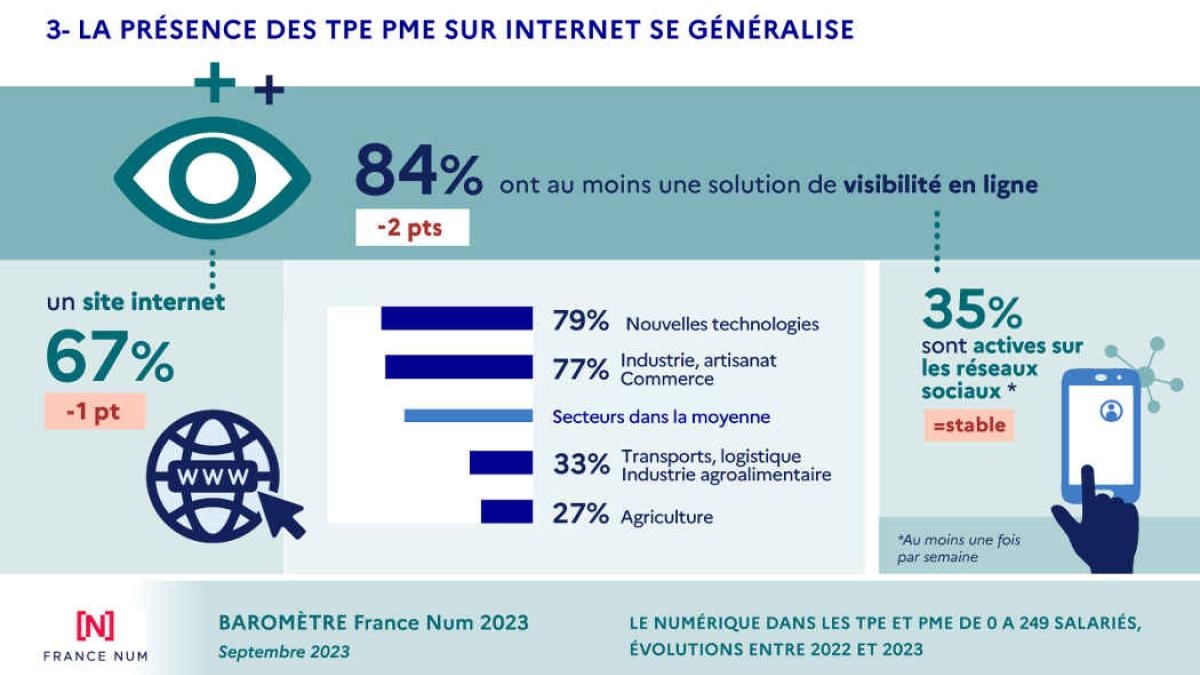Digital transformation: why French SMEs are falling behind


There is still a long way to go to convince small business leaders of the merits of digital technology. We thought that the health crisis had demonstrated the importance of dematerializing its processes to maintain activity and exchange with prospects and customers. This does not seem to be the case yet after reading the latest France Num barometer.
The proportion of convinced people even drops slightly for the first time since the creation of this observatory in 2020. In 2023, 76% of executives surveyed by Credoc consider that digital technology represents a real benefit for their company, compared to 81% in 2022.
Of course, this figure varies depending on the industry. Small and medium-sized enterprises in agriculture (62%) or construction (66%) are less tech-savvy than those working in finance and insurance (84%) or human services (83%). In detail, only 74% of respondents (down by 4 points) believe that digital technology facilitates communication with their customers and 59% (stable) communication with their employees.
The return on investment of digital technology obviously does not seem to jump out at the eyes of small bosses. 39% believe that digital technology saves them money and one in two (48%) that it allows them to save money. Finally, one in five (19%) considers that digital technology wastes more time than it saves.
Alone, every second small boss worried about the cyber threat
The perception of the cyber threat is slowly beginning to infuse. 48% of small and medium-sized enterprises declare that they are afraid of losing or having data hacked, an increase of 4 points in one year and 12 points compared to 2020. At the same time, only 61% of them have acquired a cybersecurity solution (compared to 81% in 2022). A particularly worrying figure in view of the current threat level.
Their presence on the Web has also decreased. 84% of the companies surveyed have at least one online contact channel, which is two points less in a year. This is primarily an institutional site (67%) or an account on a social network (67%). 26% of small and medium-sized enterprises have already purchased keywords to optimize their SEO on search engines.
The generalization of e-commerce is still far from being a reality. « 58% of small and medium-sized businesses do not sell online because they consider that it is not relevant for their profession or in their sector of activity “, notes the study. If we can understand this reluctance among construction contractors (71%), it is less explicable among those involved in finance-insurance (69%) and even more so in the …. commerce (34%).

Budgets down, software development up
This low digitalization can be explained by the lack of dedicated resources. 64% of small and medium-sized businesses believe that they have sufficient digital skills internally or externally (service providers), a figure down by 7 points. And if 71% plan to carry out digital projects in the next two years, budgets are falling. 44% plan to spend more than 1,000 euros (- 3 points) and 28% more than 2,000 euros (- 4 points).
These figures should not have delighted France Num. Led by the General Directorate of Enterprises (DGE), this device aims to accelerate the digital transformation of small and medium-sized businesses with the implementation of a dedicated portal, a digital diagnosis, a free Mooc or support by referenced experts.
Small and medium-sized businesses not ready for electronic invoicing
Nevertheless, there are still some reasons for satisfaction. The rate of equipment in management solution thus increases by 8 points in one year to reach 85%. Accounting management software (+13) and invoicing software (+17) are even experiencing significant growth. However, small and medium-sized businesses are not yet ready for electronic invoicing, fortunately postponed. Only 39% of them have already issued more than half of their invoices in a digital format.
In this context, it is not surprising that there is little interest in artificial intelligence, with 5% of respondents using an AI solution. The proportion is twofold (11%) for the use of a data analysis tool.
Finally, let’s end with a note of hope. More than half of small and medium-sized enterprises say they are sensitive to the environmental impact of digital technology. 42% are already implementing actions in favor of digital sobriety and 15% plan to do so in the next twelve months.









